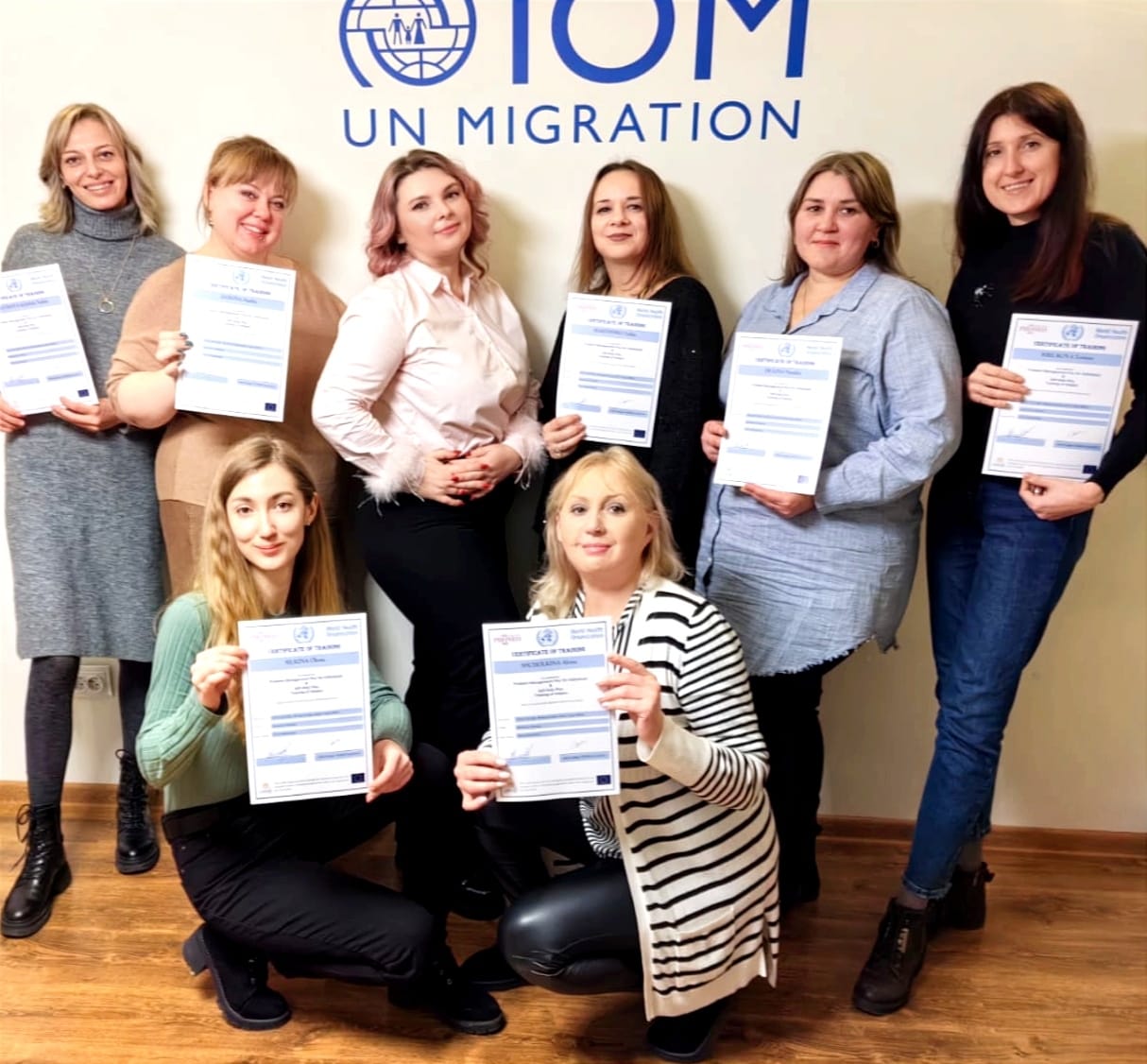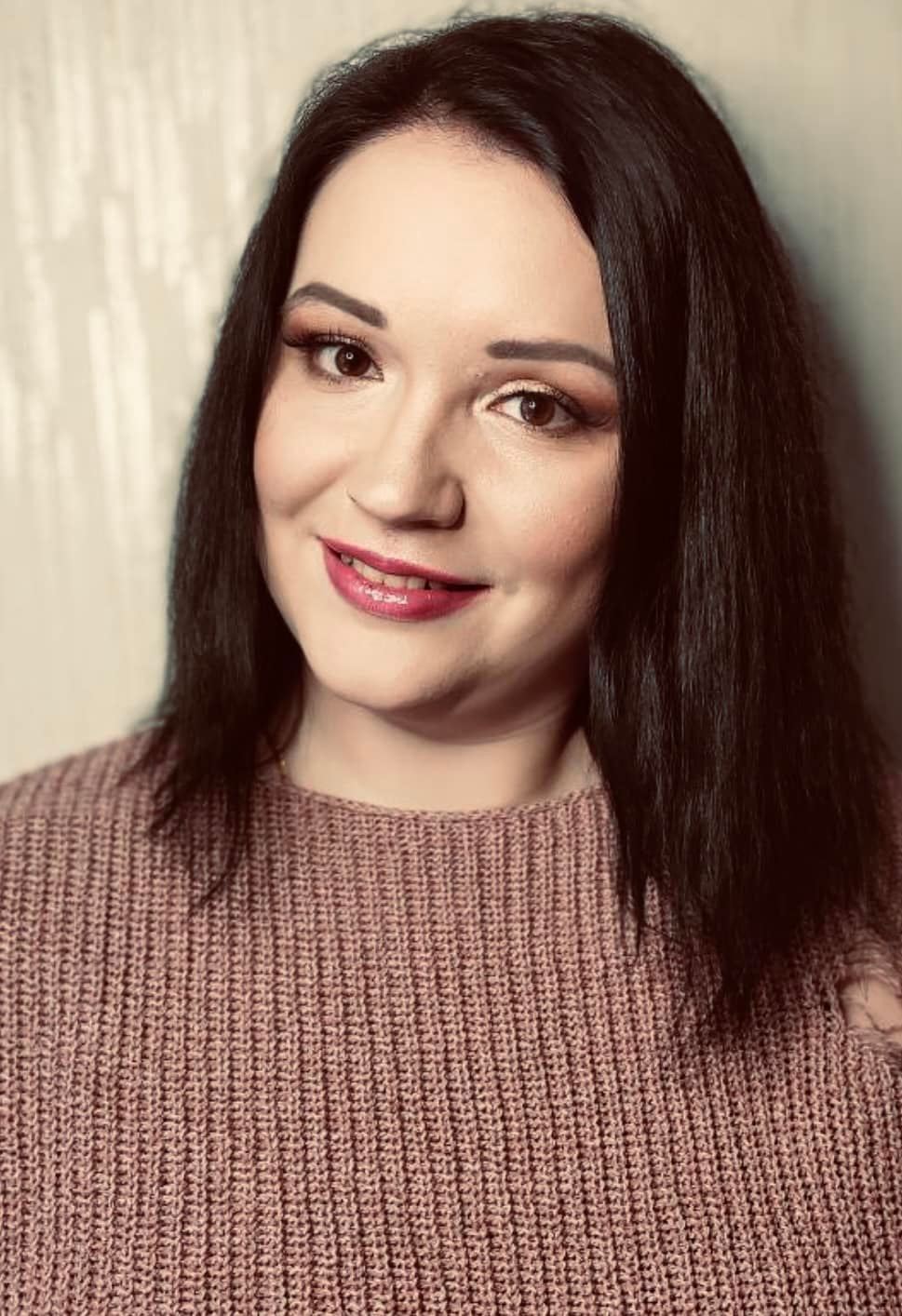Hitting pause on life isn't a solution. Here's how psychologists in Europe are supporting Ukrainian refugees.
Since the beginning of the war, around 85,000 Ukrainian refugees have found temporary shelter in Romania. Ukrainian psychologists Yanna Nikolaychuk and Galina Rakhovetskaya are also refugees. They work with international humanitarian organizations, assisting their fellow countrymen. There are numerous requests related to depression, PTSD, and anxiety. To learn more about how psychologists are helping Ukrainians cope with the stress caused by the war, read the full article from RBC-Ukraine.
Yanna Nikolaychuk: "We all must return home mentally healthy"
Yanna is a certified trainer for the World Health Organization (WHO), an art therapist, and a specialist in metaphorical approaches in psychology.
– The war caught me in Kyiv. Together with my daughter, like many of our compatriots, we went through the initial shock of fleeing. Once we began to regain our composure, I realized that many were experiencing the same thing, and I asked myself: how can I help others? Now, I support Ukrainians in their struggle with psychological trauma.
– What are the main challenges you face in your work?
– Since I also experienced the unique effects of being a refugee, I don’t feel many specific problems in my work. Sometimes it can be emotionally difficult, as it requires a significant amount of my own energy. However, when I see how therapy helps someone feel better and observe a positive change in their condition, it also lightens my own heart.
One such story is about a 17-year-old girl, whom we will call Tatyana, who was brought to me for a consultation by her parents. She had completely withdrawn, hardly leaving her room, not speaking, and only interested in drawing. Tatyana remained silent during the initial sessions.
 Photo: Yanna Nikolaychuk
Photo: Yanna Nikolaychuk
I then suggested that she draw the emotions she was experiencing. I encouraged her to try to express her mood, images, and symbols she visualized on paper. And it worked!
The girl gradually began to open up. After a month and a half of therapy, she started to talk emotionally about her experiences, loneliness, and insecurity caused by the war and relocation. After some more time, a significant transformation occurred, and from a silent, withdrawn girl, Tatyana became a confident individual who was already planning to continue her education at a university.
– How would you define the main psychological problems faced by refugees?
– The primary issues are feelings of loss, guilt, abandonment, depression, and panic attacks. These negative phenomena are often exacerbated by family conflicts or even eating disorders. Those who have endured bombings or lost loved ones often suffer from PTSD. They are frightened by any loud noises.
It is crucial to seek help from specialists as early as possible. For instance, one of my clients, who experienced the horrors of occupation in Kherson, suppressed her feelings for a long time and only came to me when she realized she couldn’t cope with her condition alone. We work step by step, and there are already positive shifts.
A significant issue negatively affecting the psychological state of our refugees is the prolonged and often fruitless job search. One father of many children came to me in deep depression. His family had to evacuate to Bucharest after their apartment in Kharkiv was destroyed during a bombing. They had no financial reserves, and for a long time, he could not find any job abroad. The question of providing for his family was becoming increasingly dire.
Additionally, this man, as he later confessed, felt guilty for not going to fight and considered himself a coward. However, by law, as the father of three minor children, he had every right to leave the country with his family. He even contemplated divorce to go to the front and defend Ukraine.
During therapy, we discovered that his main priority was his family. If he divorced his wife and went to the front, who would take care of his minor children? Fortunately, after several consultations, we managed to find a way out of the situation, a solution that not only improved the man's moral state but also positively impacted his entire family.
I used a specific technique that helps to see new opportunities and be open to them. It took just a few consultations to hear from the client with joy: "It seems everything is alright with me now!" Soon after, he informed me that he had found a good job with a decent salary, which would allow him to support his family and even donate to the needs of the Armed Forces of Ukraine.

– Yanna, what methods and approaches do you use when working with people who have experienced psychological trauma as a result of being refugees?
– The first step is to relieve stress, as a person in distress cannot think clearly. Next, I apply relaxation techniques, meditation, breathing exercises, and art therapy to help the individual detach from their pain. I also utilize cognitive-behavioral therapy and psychological techniques.
One of my clients arrived in Bucharest with a small child and her mother. Unfortunately, after experiencing severe stress, her mother fell ill with cancer and passed away. We worked together to help the client find strength within herself. In such moments, it is essential to learn to transform pain into gratitude, for instance, gratitude for having had her mother in her life, for the happy moments spent together, and their shared good deeds. Gradually, pain transitions into love and becomes a resource.
– Are there instances when you recommended clients seek medical help or resort to medication therapy?
– As a psychologist, I do not have the authority to prescribe medications. However, if I see that consultations are insufficient and depression requires medical support, I certainly refer the patient to doctors for appropriate treatment.
– Can we talk about the scale of successful adaptation of Ukrainian refugees, or are these instances rather isolated?
– I don’t have specific statistics. But I know for sure that almost everyone among those who sought help from me and my colleagues received effective assistance.
Many of my clients, after correcting their erroneous reactions and perceptions during our sessions, began to achieve real success. For example, one client started making beaded jewelry to relieve stress and eventually turned this activity into a profitable business.
Unfortunately, there are also those who simply wait to return to Ukraine, remaining in a state of apathy, thus seemingly postponing their lives. But these years are also part of your life, and putting it on pause is not a solution.
"It’s hard for adults, but even harder for children": Galina Rakhovetskaya on children's reactions to war and being refugees
Another interviewee, Galina Rakhovetskaya, specializes in helping children with intellectual and mental developmental delays, as well as adolescents.
– The war caught me in Odesa, where I lived with my mother and daughter. I worked at a special school for children with intellectual and mental disabilities. When one of the many shells exploded right near our home, we moved to Izmail.
However, soon after, when I lost my job due to staff reductions and artillery shelling in Izmail became as frequent as in Odesa, we decided to go to Bucharest. I was fortunate: I quickly found a job as a psychologist in an international humanitarian organization, where I still work.
 Photo: Galina Rakhovetskaya
Photo: Galina Rakhovetskaya
– How does psychological help for refugee children differ from that for adults?
– The main issue for children with special needs is timely and accurate diagnosis. Many children were not properly examined before, and the war has only worsened the situation: a new society, a different language, an unfamiliar environment. The primary request from parents was regarding diagnosis: whether their child’s development corresponds to their age.
Subsequently, adolescents also began to reach out with complaints about fear of the dark, loud noises, and panic attacks. I helped them adapt by creating groups for socialization and career orientation, where teenagers could discover themselves, and older ones could even find jobs.
Another common request is related to relationships with parents. Unfortunately, adults often undervalue children's emotions. Yanna Nikolaychuk and I worked together: I referred parents to her, and this strengthened the outcomes.
I always tell parents: "It’s hard for you, but it’s even harder for your child." We need to address the problem.
Children, on the other hand, may not always be able to explain what they are going through, and often just withdraw and suffer. They need more time and psychological sessions to establish a trusting relationship. Only when they start to open up can we begin therapy.
– What reactions are observed in children who have been forced to leave their country?
– Teenagers have become more withdrawn. They have lost their familiar environment, friends, and their social setting. They are relocated to another country and new schools where they feel misunderstood. They often shut down, avoiding contact to prevent misunderstand